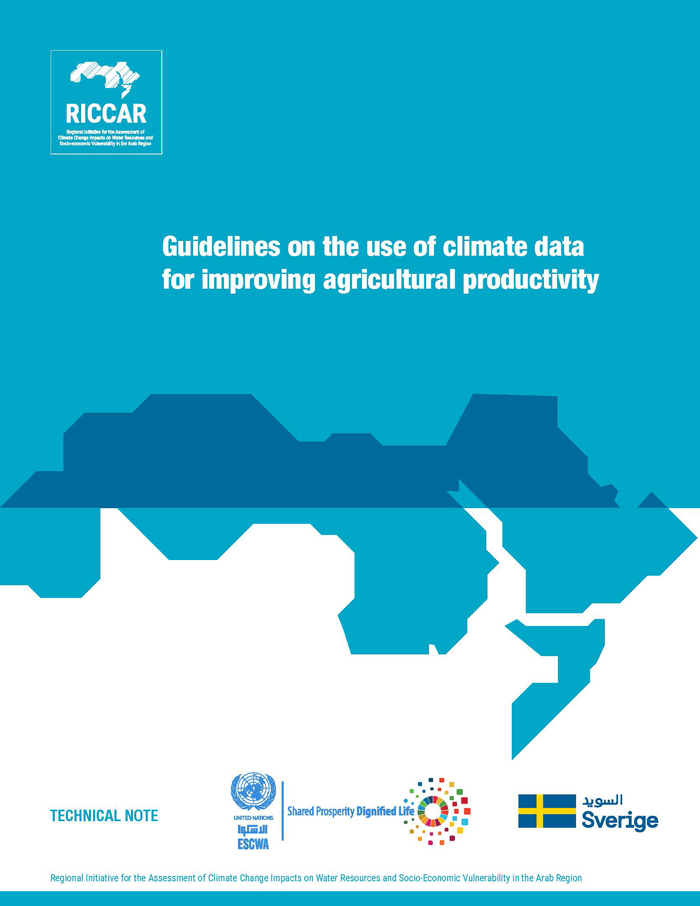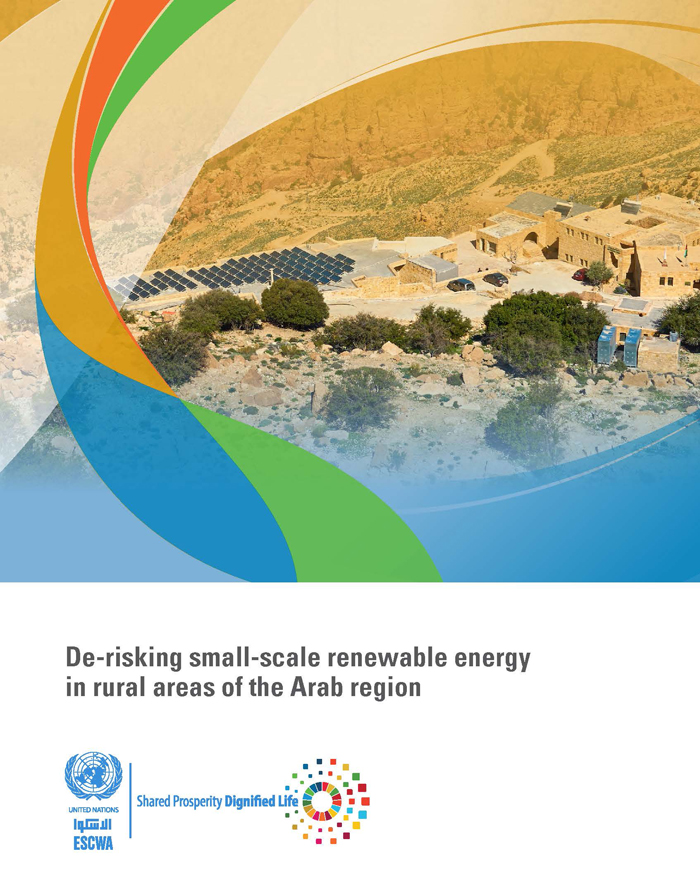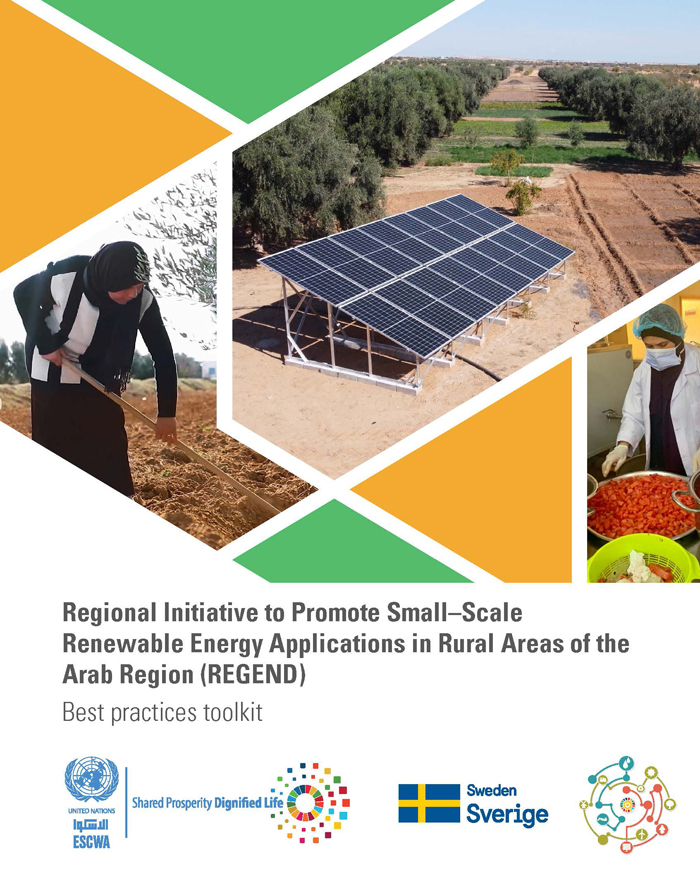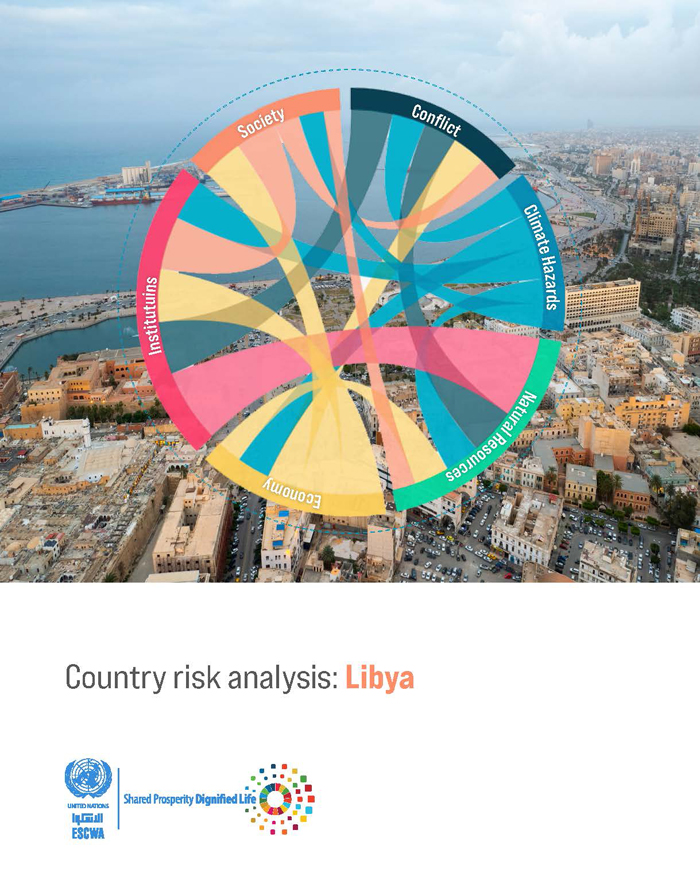
ESCWA Publication: E/ESCWA/CL1.CCS/2021/RICCAR/TECHNICAL NOTE.4
Country: Arab region
Publication Type: Information material
Cluster: Climate Change and Natural Resource Sustainability
Focus Area: Climate change, Natural resource sustainability
Initiatives: RICCAR, Advancing water and food security
SDGs: Agenda 2030
Keywords: Climate, Agriculture, Crops, Crop yields, Weather, Agricultural production, Climate change, Data analysis
Guidelines on the use of climate data for improving agricultural productivity
June 2022
The present document aims to guide climate data users and agriculture stakeholders (such as farmers, intermediaries and agricultural workers, among others) in the Arab region on the applicability of climate data in the agriculture sector. It provides an overview of the importance and impact of the climate on the agricultural sector, and the extent to which climate data can be used to reduce the negative impacts associated with climatic conditions (such as plant disease, crop damage and yield reduction). Furthermore, it addresses key considerations for making climate services more effective.
The document also provides practical examples that can assist and prepare countries to withstand
weather and climate-related hazards; it documents various natural disasters and proposed solutions to reduce their negative impacts. It also highlights the importance of future forecasting data and the role of such data in developing appropriate climate change adaptation plans. It discusses many ways in which the efficiency of agricultural production could be increased with knowledge of climate services, the role of such services in the agricultural sector, the consequences of the shortage of climate data and how these services can play a key role in providing the agricultural sector and decision makers with valuable information to support appropriate actions in order to reduce the adverse impacts of climate change.
Related content
Climate change
, Natural resource sustainability
,
The present document aims to guide climate data users and agriculture stakeholders (such as farmers, intermediaries and agricultural workers, among others) in the Arab region on the applicability of climate data in the agriculture sector. It provides an overview of the importance and impact of the climate on the agricultural sector, and the extent to which climate data can be used to reduce the negative impacts associated with climatic conditions (such as plant disease, crop damage and yield reduction). Furthermore, it addresses key considerations for making climate services more effective.
The document also provides practical examples that can assist and prepare countries to withstand
weather and climate-related hazards; it documents various natural disasters and proposed solutions to reduce their negative impacts. It also highlights the importance of future forecasting data and the role of such data in developing appropriate climate change adaptation plans. It discusses many ways in which the efficiency of agricultural production could be increased with knowledge of climate services, the role of such services in the agricultural sector, the consequences of the shortage of climate data and how these services can play a key role in providing the agricultural sector and decision makers with valuable information to support appropriate actions in order to reduce the adverse impacts of climate change.



